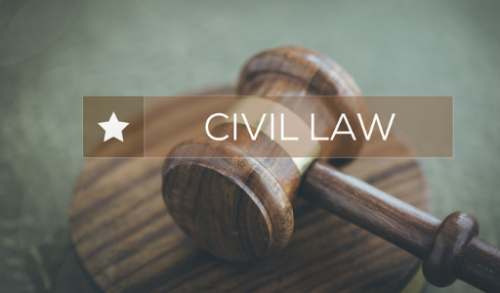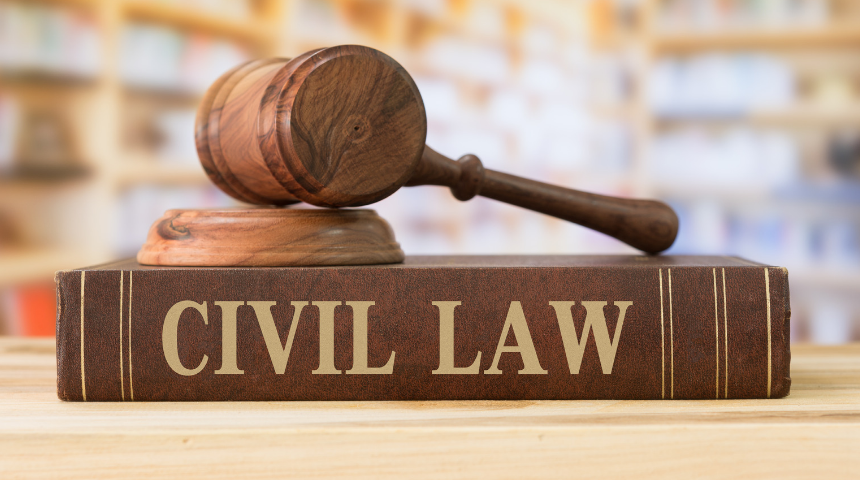Table of Contents
There are various types of law, such as criminal, constitutional, etc. One such type is civil law.
So, what is civil law? What does it entail? Here are some things you should know about civil law:
What is Civil law?
 Civil Law is the body of laws that govern the relationships between individuals and governments. Civil law mostly governs human relationships, while criminal law usually governs people’s interactions with the state. Civil law is also sometimes called private international law, as it deals with matters of private interest between individuals or between private individuals and states.
Civil Law is the body of laws that govern the relationships between individuals and governments. Civil law mostly governs human relationships, while criminal law usually governs people’s interactions with the state. Civil law is also sometimes called private international law, as it deals with matters of private interest between individuals or between private individuals and states.
You should always hire leading UK tax tribunal solicitors to get the best assistance.
It includes both the rules that govern private disputes and the rules that govern public disputes between government entities. Civil law is distinct from criminal law, which is the area of law that governs whether someone has committed a crime and what penalties they may face if convicted.
A few examples of civil law include:
- Contracts (agreements between individuals)
- Contractual rights (rights to receive money or property from another party)
- Property development rights (rights to use or possess something)
Civil laws are often created by legislatures and enforced by courts. For example, for someone to enforce their right to own an item contractually, they would have to sue another individual who had entered into a contract with them and taken possession of it without permission.
Characteristics of civil law
Here are the characteristics of civil law you should know:
1. It involves no charges
 Civil law is a legal system that involves no charges. This system aims to provide a framework for resolving disputes between individuals and organizations and ensuring rights are protected.
Civil law is a legal system that involves no charges. This system aims to provide a framework for resolving disputes between individuals and organizations and ensuring rights are protected.
Civil law covers many different areas of law, including contract law, property law, torts, criminal, family, and social security.
Civil law typically involves no jail punishment or charges but a set of rules and regulations governing rights, duties, and responsibilities.
Civil law can be contrasted with criminal law, the body of law regulating the actions of people accused of breaking laws. Criminal law may involve punishment or charges, in addition to civil remedies such as compensation for violations of civil rights and damages for injury done to others.
2. It takes time
 Civil law is based on the idea that you should be able to solve your legal problems. Civil law does not have one simple solution for all cases. Instead, civil law allows you to have different options if you want to solve a problem in your way.
Civil law is based on the idea that you should be able to solve your legal problems. Civil law does not have one simple solution for all cases. Instead, civil law allows you to have different options if you want to solve a problem in your way.
For example, if you are not happy with how your landlord has handled their responsibilities regarding your rental agreement, then you can take action against them in court or through other channels of legal recourse.
In such a civil case, many steps must be taken before the case can be resolved. An initial complaint must be filed by one party; if the case is not resolved through mediation and negotiation, a hearing will occur. After the hearing, a trial will be held if no agreement has been reached. This can take months or years.
3. It’s complex
Civil law can be complex than other type of laws such as commercial law, because many laws govern different aspects of life and society.
For example, there are laws about how businesses operate and interact with their employees, laws about how individuals can conduct themselves in public spaces, and laws governing how people should treat their employees.
Because these laws are so varied, it can be difficult for anyone even civil lawyers to understand everything that goes into civil law without having some first-hand experience.
Conclusion
As you can see, there’s much more to civil law than meets the eye. Civil law is a system of rules and regulations governing relationships between people. Civil law covers various topics, including property rights, family, and contract law.



